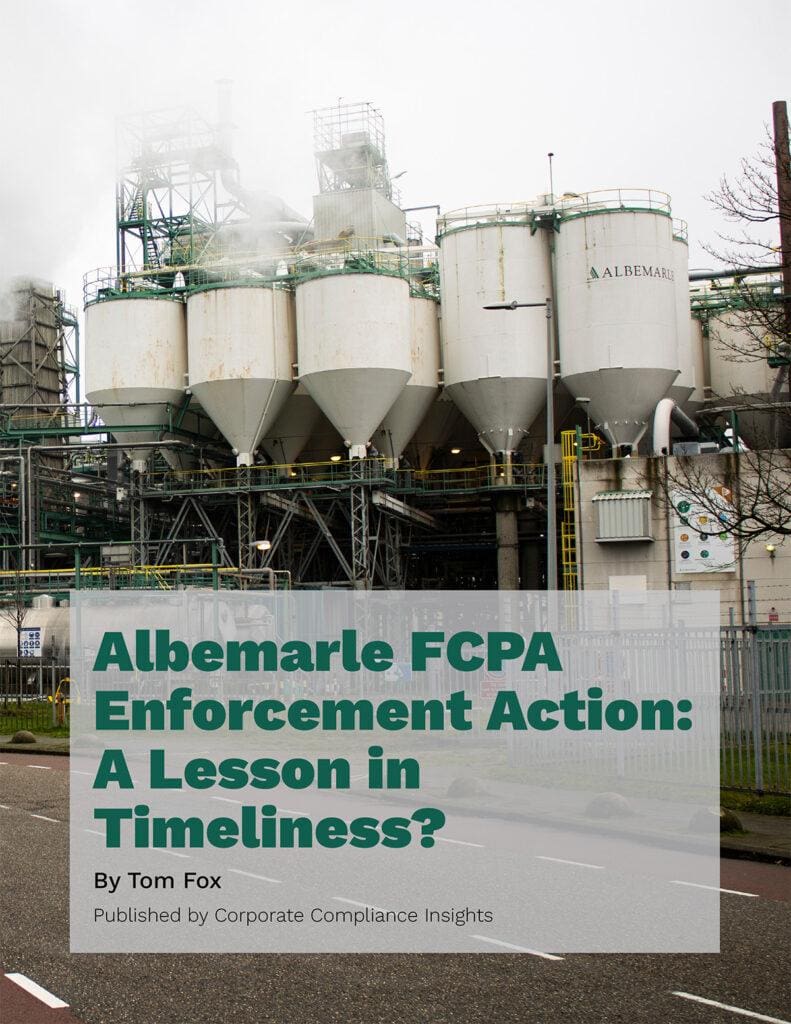
What does ‘timely’ self-disclosure really mean?
Albemarle FCPA Enforcement Action
A Lesson in Timeliness?
What’s in this whitepaper from Tom Fox:
Albemarle Corp., a publicly traded specialty chemicals manufacturer based in North Carolina, in September agreed to pay more than $218 million to resolve probes by the DOJ and SEC into reported violations of the FCPA tied to the company’s participation in corrupt schemes to pay bribes to government officials in multiple foreign countries, including Vietnam, India and Indonesia.
In his analysis of this recent FCPA resolution, podcaster and FCPA expert Tom Fox details the biggest takeaways, including the importance of true timeliness in self-disclosure.
Albemarle’s self-disclosure, 16 months after it discovered wrongdoing, was not enough, according to the DOJ, to get full credit as a voluntary self-disclosure: “What the DOJ wants is self-disclosure as soon as possible. One only needs to recall the case of Cognizant Technologies in which the company received a full declination where there were allegations of C-Suite involvement in the bribery schemes. This declination was provided in large part because the company made its self-disclosure only two weeks after the information filtered up the board of directors. While Cognizant Technologies may be the gold standard, it shows that if a company timely self-discloses it can be considered for a full declination,” Fox writes.


